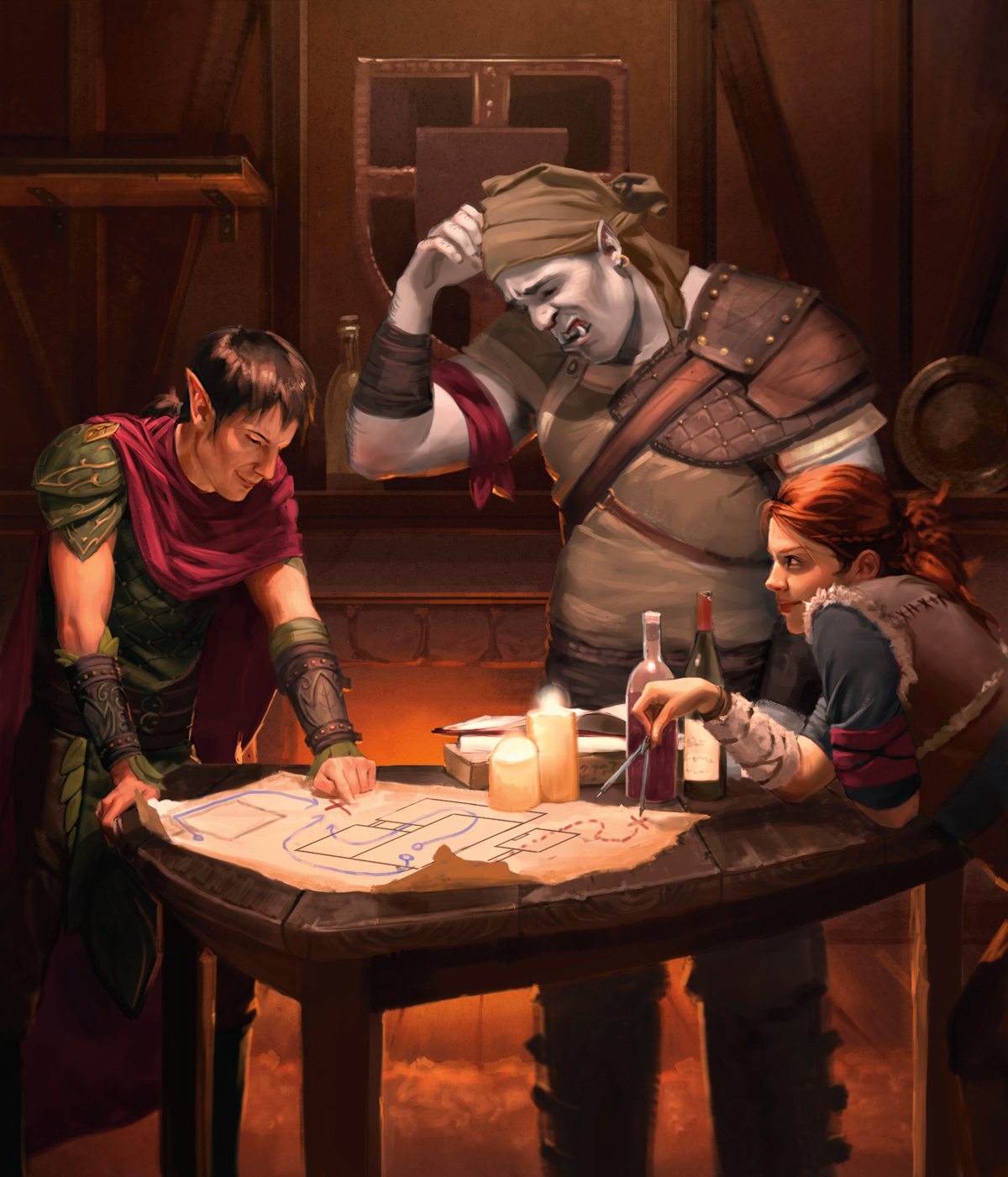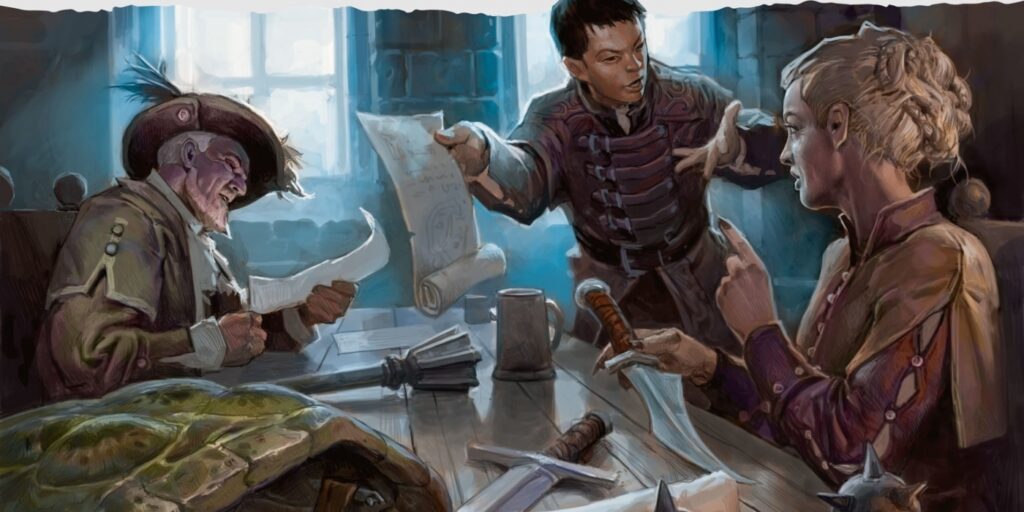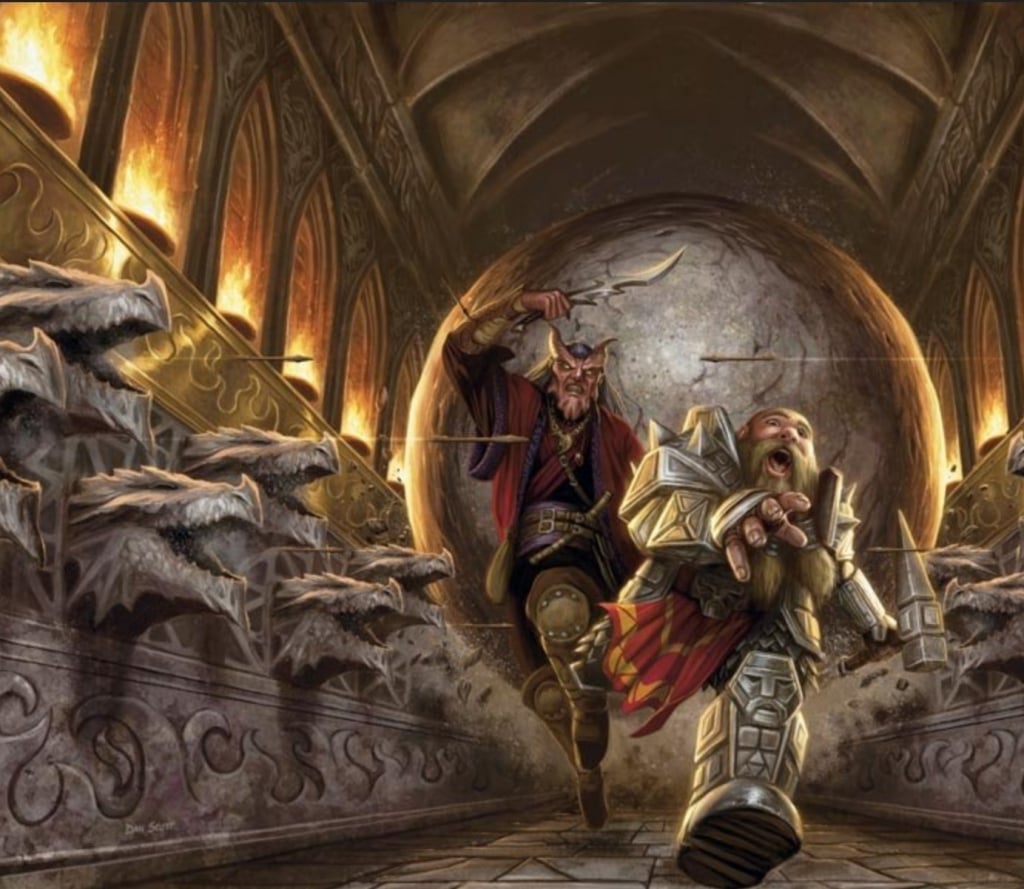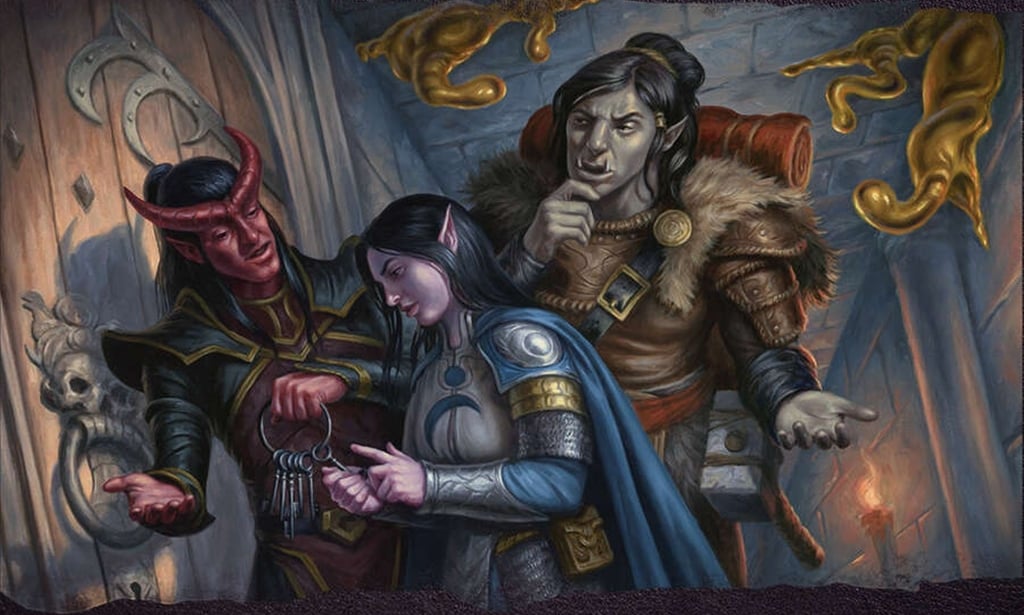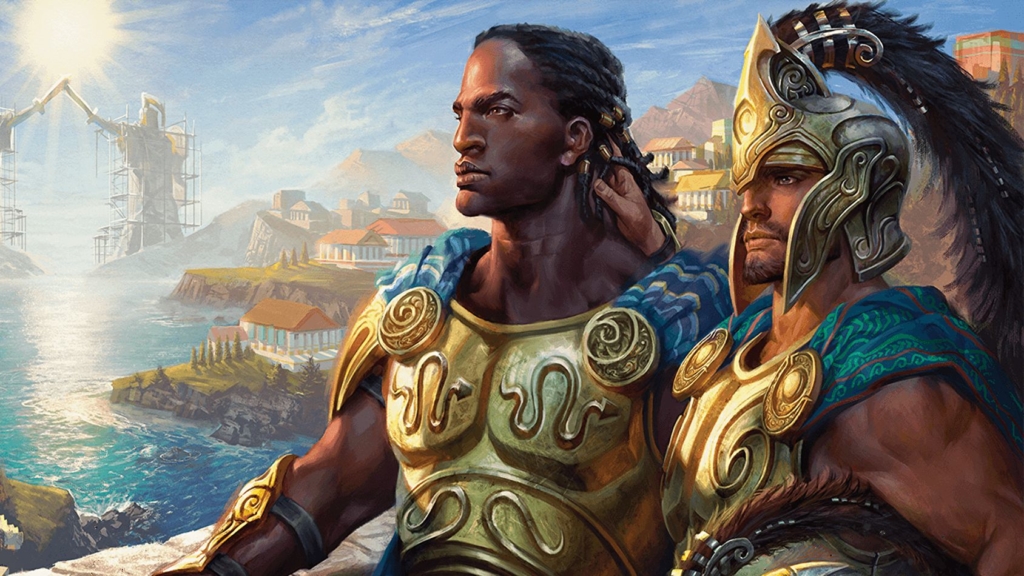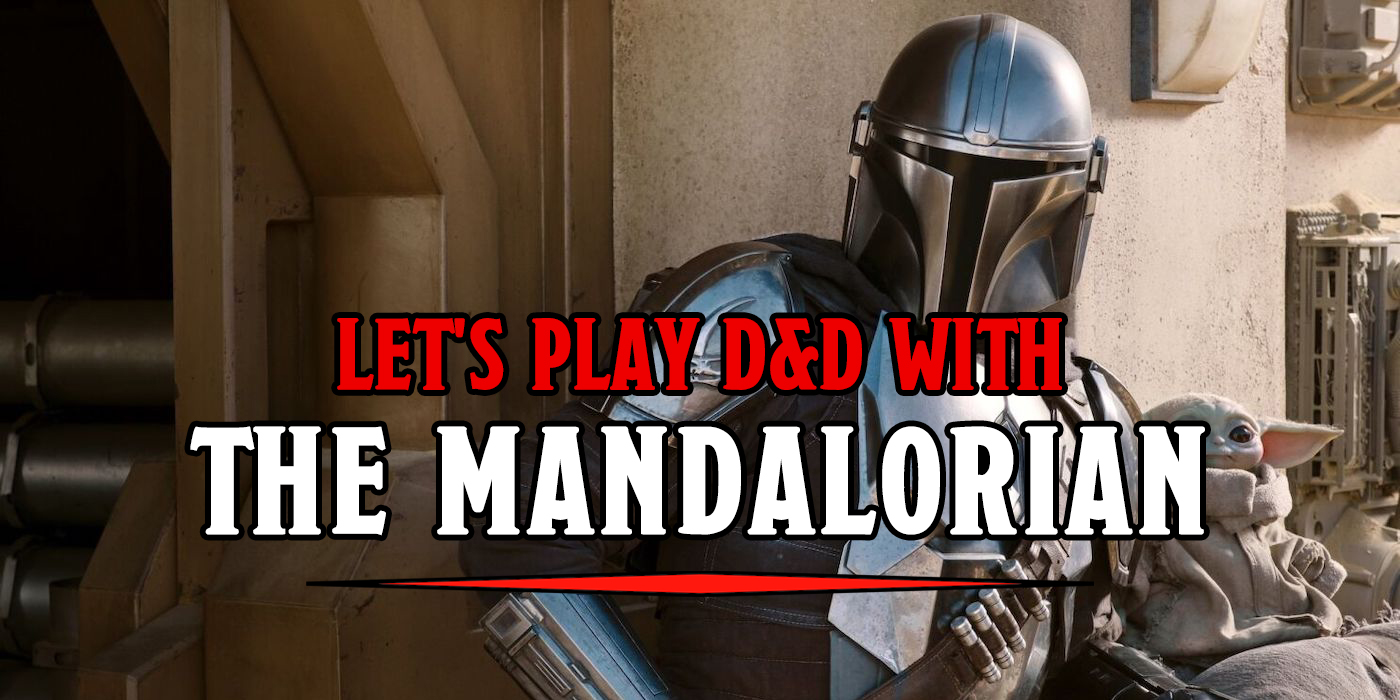D&D: Five of Matt Mercer’s Player Tips
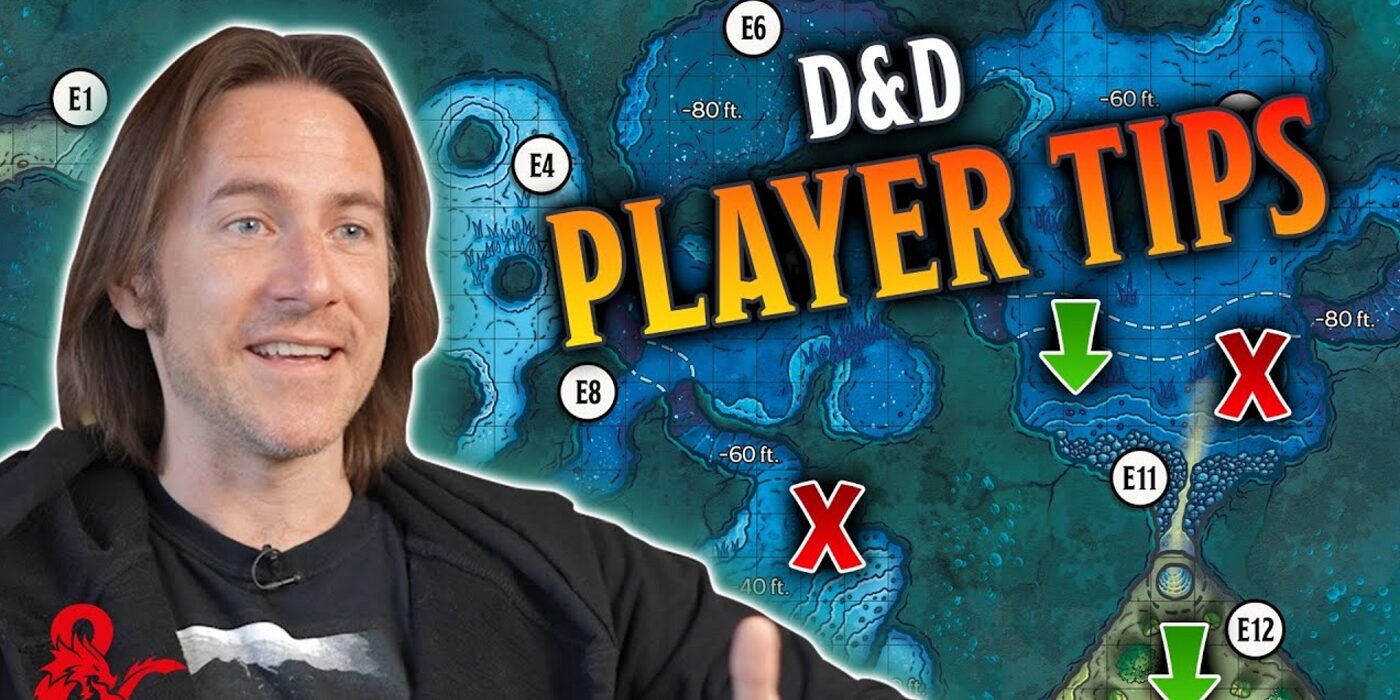
We’re celebrating Vox Machina Season 2 by revising some of Matt Mercer’s best player tips! They’re surprisingly meta.
With the Legend of Vox Machina Season 2 bringing dragons and sphinx and legendary artifacts to animated life, we’re celebrating the launch by revisiting some of Matt Mercer’s best tips for players.
It’s fantastic stuff that can work, whatever you’re campaign, whatever your character because the advice that the Critical Role DM gives isn’t necessarily about what classes to pick or how to take good notes. Instead, he talks about how to be present and engaged and how to set everyone’s expectations – including your own. Take a look at the video below:
These player tips are pretty universal. They reflect a lot of the conversations of the last few years. In fact, Mercer even goes out of his way to say these aren’t his original ideas, just what works for him. It involves looking out for yourself and the other players at your table.
If this sentiment calls up discussions of TTRPG safety tools, you’d be right to think so. Because the ideas Mercer lays out as “player tips” are another way of saying “be communicative about what you do and don’t want at your table.” And that goes for players and DMs alike.
Know What You Want
The first thing Mercer suggests is to think about what you want. What kind of story do you want to play in, and what kind of game do you want to have? And, much like safety tools aren’t wish fulfillment suggestions, this isn’t about specifics – but in general, knowing what you want is helpful. If you’re looking for a hack-n-slash dungeon crawl and the rest of the table wants to argue about who the duchess should marry to cement the alliance with the Ravenbone clans, then you’re going to be in for a bumpy ride.
Ask For It
And following along with knowing what you want, is being able to ask for it. Odds are good you’re not playing at a table with mind-readers (you never know, so watch what you think), but even if you are it’s still better for everyone if you can ask for what you want. Ask, not demand. You’re all there to play D&D, after all.
This again ties back to the “safety in RPGs” discussion that the community’s been having for a while now. There are some good resources about how to ask for what you do and don’t want – Kienna Shaw and Lauren Bryant-Monk co-curated an award-winning list of different tools. And while they’re ostensibly about safety, that safety comes about as a result of communication. Which is at the heart of what Mercer’s talking about.
You Gotta Know When to Hold ‘Em, When to Fold ‘Em, When to Walk Away, and When to Run
Mercer also mentions walking away when you realize it isn’t working. No pizza is better than pizza you aren’t enjoying. Same with D&D. Again, it all boils down to communication. So far, these first three tips are centered on finding a game that works, to begin with. But really the secret sauce is the last two…
Be Supportive When Your Fellow Players Get to Do Cool Things
This one is a great tool to have in your toolbox. As a player, one of the best things you can do is be engaged and supportive when other people are doing cool things. It can be as simple as shouting yeaaah! when someone gets that critical role or supports their characters in-game. If you know another character’s personal goals are in play, find a reason for your character to back them.
In other words, be as engaged as you’d want other people to be when you’re playing in the spotlight. Which leads to Mercer’s next tip.
Share the Spotlight, Bring Other Players In
Respect the boundaries of other players, of course. But when you have the campaign’s spotlight, look for reasons to bring along the other characters. It’s a heck of a great team-building tool.
Sure, you might be the center of attention, but when you say to another player, “Hey, I need your help,” or “Why don’t you tell me what you think?” it immediately draws them in. Just like in real life, to be interesting, be interested. Whether you’re in the spotlight or not.
What are your best player tips?

